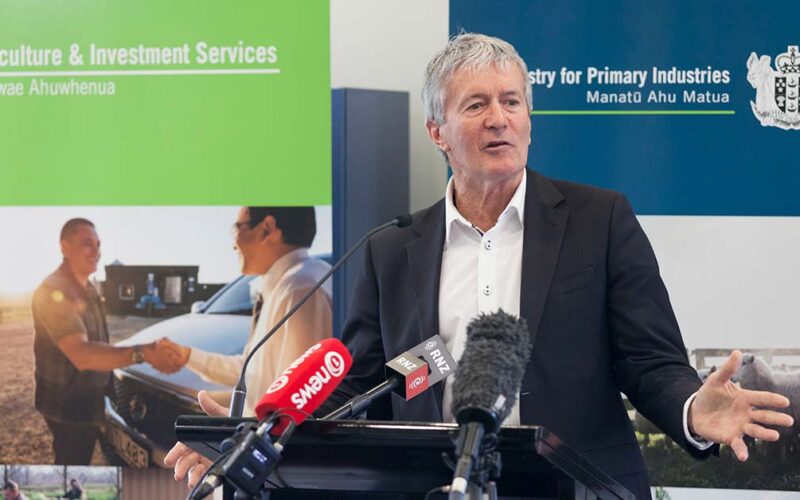The government is listening to farmers and has shown it will make changes to policy where it needs to, says Agriculture Minister Damien O’Connor.
“There are numerous instances where the government has listened to farmers and adjusted,” he said in response to ongoing criticism that it has rushed policy and treated consultation as a box-ticking exercise.
“For instance, the He Waka Eke Noa process has been progressing since 2019 when the government agreed with the request of the industry to allow them to develop a workable way to price agricultural emissions.”
Equally, he said, freshwater reforms were not rushed.
Development of Essential Freshwater policy started in 2017-18 and involved engagement with all interested parties, including public consultation, that in 2019 resulted in a record 17,500 submissions.
That consultation included setting up a multi-agency Water Taskforce that worked with four advisory groups drawn from the primary sector, Māoridom, scientists, local government, environmentalists and technicians.
An Independent Advisory Panel chaired by retired Environment Court Judge David Sheppard assessed the submissions and recommended changes to address concerns.
O’Connor said an extensive economic, scientific and social impact analysis was commissioned from expert agencies, and peer-reviewed.
The requirement for freshwater farm plans is being gradually introduced, starting with Southland, Gisborne and Waikato. Full implementation is expected to take up to five years.
O’Connor said the government worked closely with farmers, especially in Southland, on intensive winter grazing to get workable and effective rules.
Implementation was delayed from May 2021 to November 2022 following a commitment from the farming sector to make immediate improvements to practices for the 2021 season.
Similarly, O’Connor said, there was comprehensive consultation between October and late November 2021 over the greenhouse gas emissions reduction plan.
“Consultation ran for six weeks and was also informed by the advice of the Climate Change Commission, which had run a significant consultation earlier in 2021.”
The document attracted 10,050 submissions and the Ministry for the Environment (MFE) also held 19 webinars on the plan, in which 1876 people participated.
“Unfortunately, due to our legislative time frames, even with an extension, we were consulting during a period of covid restrictions and were unable to take the consultation physically ‘on the road’,” O’Connor said in a statement.
It allowed anyone to access consultation material, he said.
O’Connor said most submissions, 9479, were from individuals, including more than 7300 drawn from the three most widely used form templates created by the Green Party, Forest and Bird and the World Wildlife Fund.
Sixteen webinars and workshops were also held by MFE.
On indigenous biodiversity, O’Connor said a Biodiversity Collaborative Group (BCG) was formed to prepare a draft National Policy Statement on Indigenous Biodiversity (NPSIB).
Its members were Royal Forest and Bird, Federated Farmers, the Pou Taiao Iwi Advisors Group, the Environmental Defence Society, NZ Forest Owners, Mercury NZ and Meridian Energy.
He said MFE and the Department of Conservation then developed a draft with public consultation between 2019 and 2020, yielding more than 7000 submissions.
A final exposure draft consultation was completed in mid-2022, which led to changes requested by the agricultural sector.
O’Connor said those included improved consistency and alignment with other national policies and clarification of management requirements for native biodiversity in plantation forests, for pastoral farming in areas outside significant natural areas and geothermal ecosystems.
“Incorporating this feedback has improved the workability of the NPSIB, and outcomes for indigenous biodiversity protection.”






